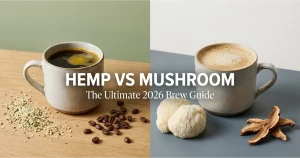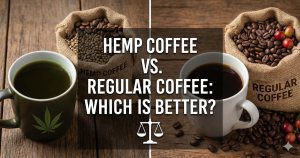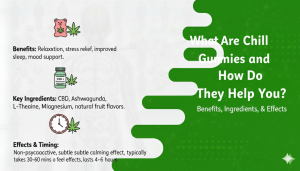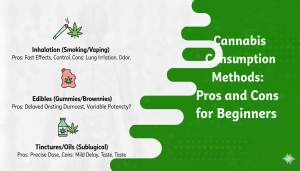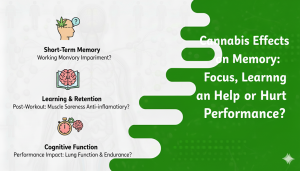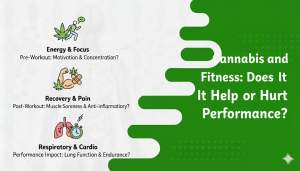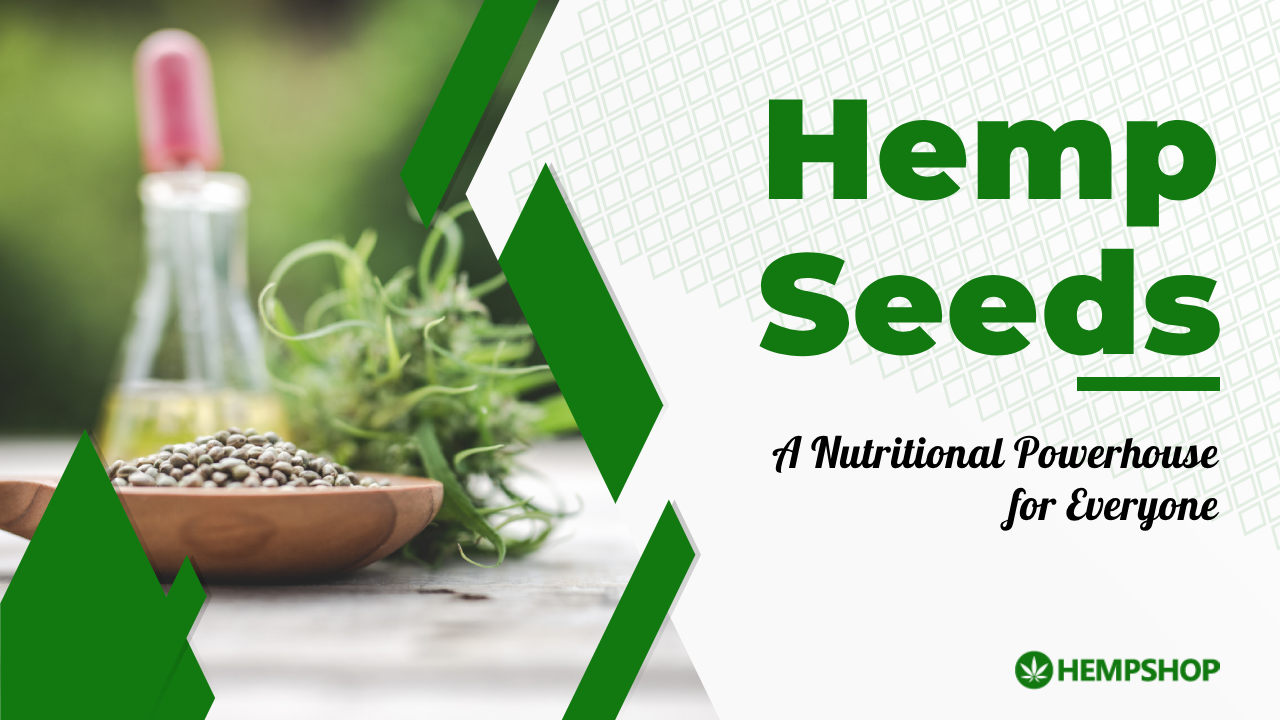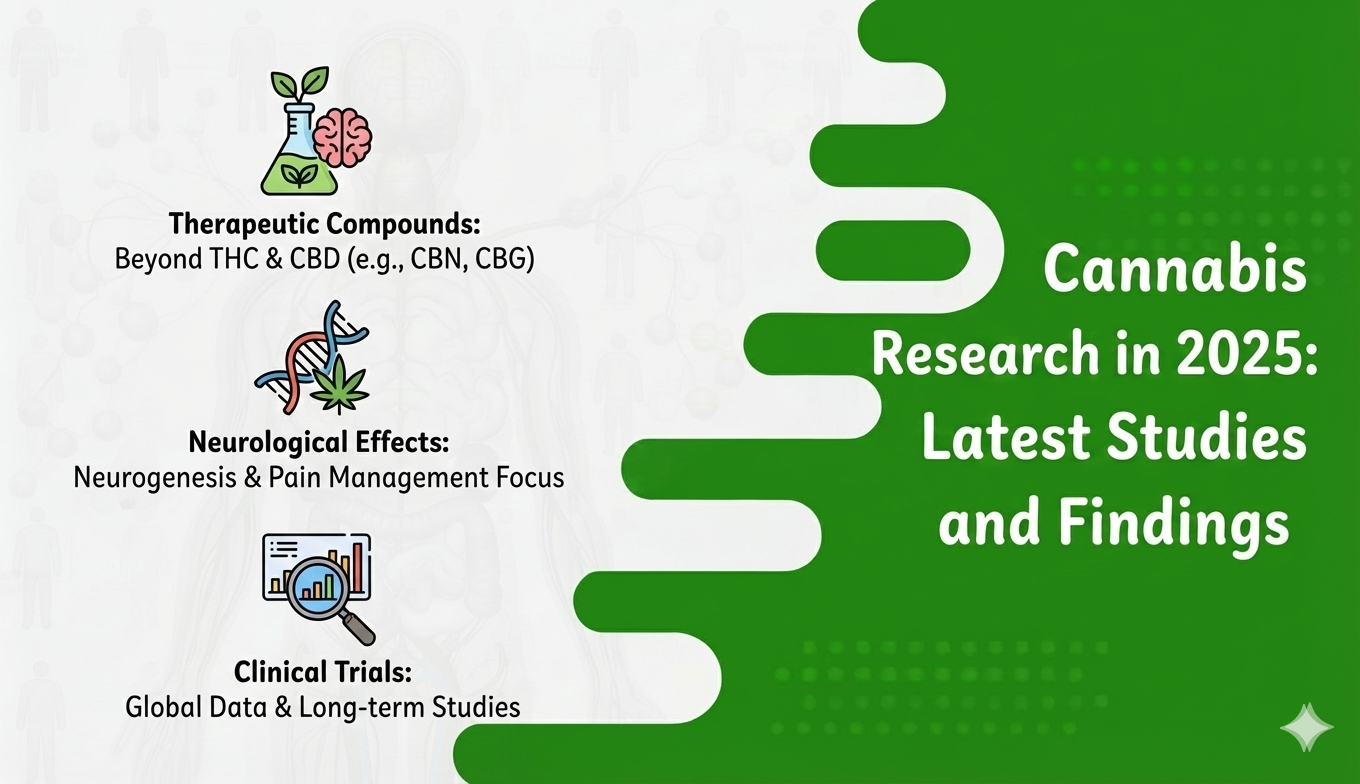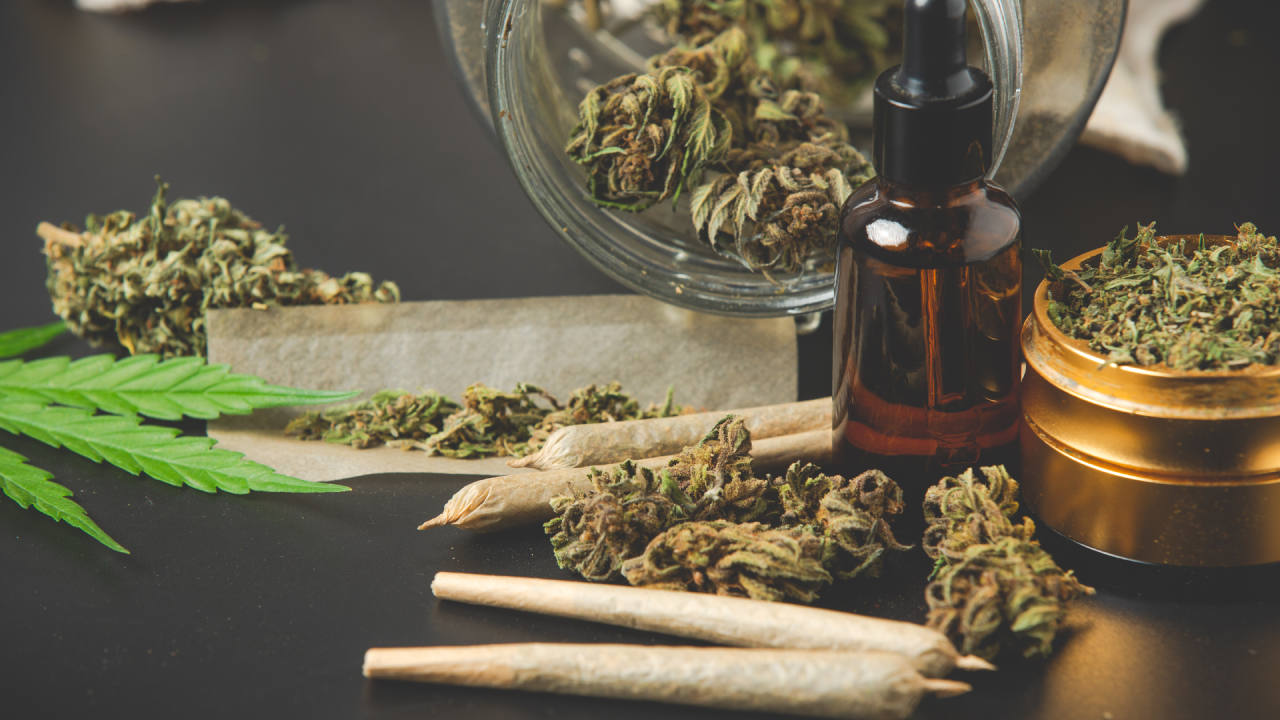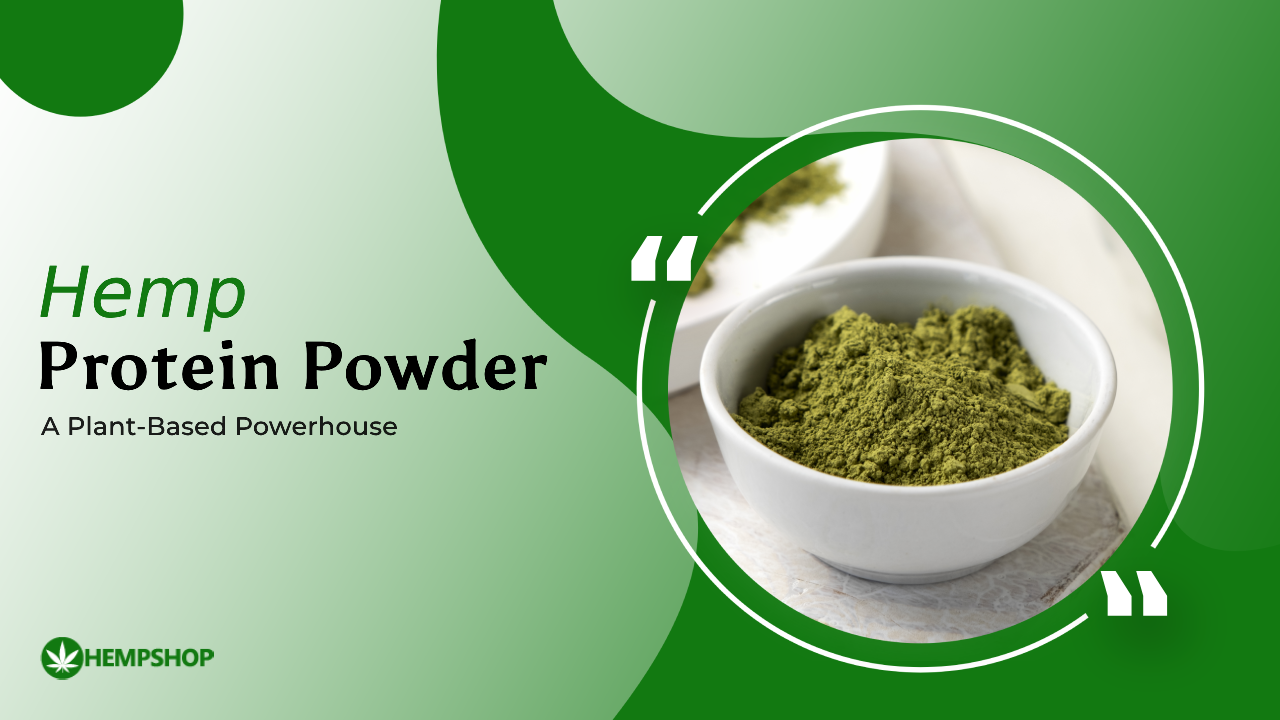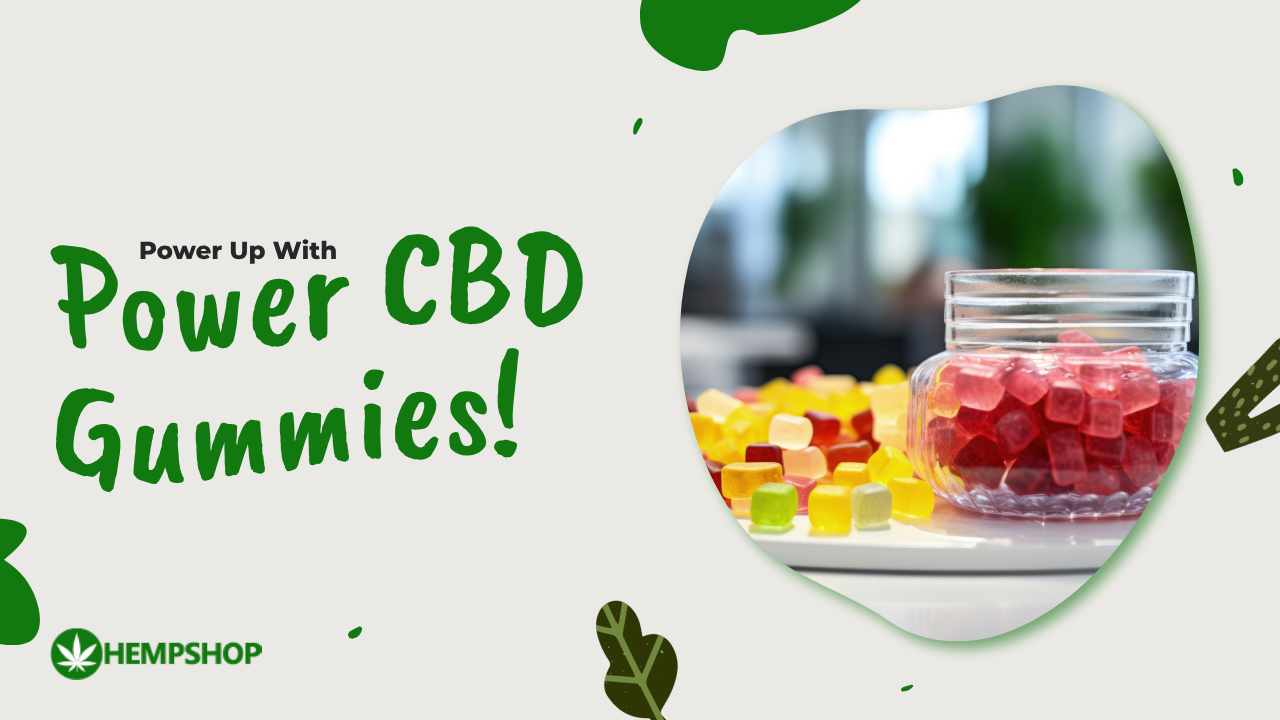There are links on this site that can be defined as affiliate links. This means that we may receive a small commission (at no cost to you) if you purchase something through the links provided on this website.
Hemp seeds, also known as hemp hearts, are tiny nutritional powerhouses bursting with health benefits. Derived from the hemp plant (Cannabis sativa), a close relative of marijuana, hemp seeds offer a delicious and versatile way to boost your diet. Unlike marijuana, hemp seeds contain only trace amounts of THC, the psychoactive compound, and are safe for consumption.
This comprehensive guide dives deep into the world of hemp seeds, exploring their uses, nutritional profile, and how they can seamlessly integrate into your everyday meals.
Key Takeaways:
- Hemp seeds (hemp hearts) are nutrient-rich with protein, healthy fats, fiber, vitamins, and minerals.
- Hemp seeds may promote heart health, support healthy skin, aid digestion, and potentially reduce inflammation.
- Easily incorporate hemp seeds into your diet. Sprinkle them on yogurt, blend them in smoothies, or bake them into muffins.
- Hemp is an eco-friendly crop requiring minimal water and offering a variety of uses beyond food production.
Hemp Seed Oil: Liquid Gold for Your Health
Hemp seed oil, extracted from hemp seeds, is a rich source of essential fatty acids, particularly omega-3 and omega-6. These essential fatty acids play a vital role in maintaining heart health, brain function, and overall well-being. Hemp seed oil boasts a nutty flavor and can incorporated into your life through hemp seed oil capsules.
Health Benefits of Hemp Seeds:
Hemp seeds go beyond their culinary appeal, offering a plethora of health benefits:
Rich in Protein:
Hemp seeds are a complete protein source, containing all nine essential amino acids your body needs. This makes them a valuable plant-based protein option for vegetarians and vegans.
Promotes Heart Health:
The healthy fats present in hemp seeds, like omega-3 and omega-6, can contribute to maintaining healthy cholesterol levels and overall heart health.
Support Skin Health:
The essential fatty acids in hemp seeds may aid in promoting healthy skin by reducing inflammation and dryness.
Fiber for Gut Health:
Hemp seeds are a good source of dietary fiber, which can support digestive health and promote regularity.
Potential Anti-Inflammatory Effects:
Research suggests that hemp seeds may possess anti-inflammatory properties, potentially aiding in managing conditions like arthritis and inflammatory bowel disease.
For more in-depth information about the various benefits of hemp, be sure to check out Budora for a detailed look at how this versatile plant can improve everything from heart health to skin vitality.
Easy Ways to Include Hemp Seeds in Your Routine:
Here are some creative ways to incorporate them into your diet:
- Breakfast Boost: Sprinkle hemp seeds over oatmeal, yogurt, or granola for a satisfying and protein-rich start to your day.
- Salad Sensation: Elevate your salads with a crunchy and nutritious hemp seed topping.
- Smoothie Powerhouse: Blend hemp seeds into your favorite smoothie recipe for a creamy texture and extra protein.
- Baked Bliss: Add hemp seeds to muffins, cookies, or bread dough for added fiber and a nutty flavor.
- Energy Bites: Make homemade energy bites packed with hemp seeds, nuts, dried fruits, and healthy fats.
- Hemp Milk Alternative: Explore making your hemp milk, a dairy-free and nut-free milk option.
Important Disclaimer: While research on the health benefits of hemp seeds is ongoing, it’s crucial to consult with a healthcare professional before incorporating them into your diet, especially if you have any underlying health conditions.
Hemp Seeds Nutrition: Breakdown of Essential Nutrients
Hemp seeds are a nutritional powerhouse, boasting an impressive array of essential nutrients:
- Protein: Approximately 25% of a hemp seed’s calories come from high-quality protein.
- Essential Fatty Acids: Hemp seeds are an excellent source of omega-3 and omega-6 fatty acids, crucial for overall health.
- Fiber: Hemp seeds are a good source of dietary fiber, promoting gut health and digestion.
- Minerals: Hemp seeds are a rich source of minerals like phosphorus, potassium, magnesium, calcium, iron, and zinc.
- Vitamins: Hemp seeds contain vitamins like vitamin E, vitamins B1, B2, and B6.
The Nutritional Value of Hemp Seeds:
Hemp seeds are a low-carb, high-fat food. A 30-gram serving of hemp seeds (approximately 3 tablespoons) offers:
- Calories: 166
- Protein: 15 grams
- Fat: 14 grams (including 2.5 grams of omega-3 and 6.5 grams of omega-6)
- Carbohydrates: 2.5 grams
- Fiber: 1.5 grams
- Iron: 2 mg
- Magnesium: 30 mg
- Phosphorus: 325 mg
- Potassium: 68 mg
- Zinc: 3 mg
Please note:
These are approximate values, and the exact nutritional content of hemp seeds may vary depending on the brand and growing conditions.
Potential Side Effects:
Hemp seeds are generally well-tolerated, but some people may experience mild side effects like
- bloating,
- gas,
- or diarrhea,
especially when consuming large amounts initially. Start with a low dose and gradually increase to allow your body to adjust.
Recipe with Hemp Seeds
Looking for inspiration to incorporate hemp seeds into your meals? Explore these delicious and nutritious recipes:
- Hemp Seed Crusted Salmon with Roasted Vegetables: This dish features protein-rich salmon coated in a flavorful hemp seed crust and served alongside roasted vegetables.
Conclusion:
Hemp seeds are a tiny nutritional powerhouse offering a multitude of benefits. From their impressive protein and healthy fat content to their potential health advantages and versatility in the kitchen, hemp seeds are a valuable addition to any diet. So, explore the world of hemp seeds, unlock their culinary potential, and experience the power of this tiny superfood.
FAQ’s:
Are hemp seeds psychoactive?
No, hemp seeds contain only trace amounts of THC (the psychoactive compound in marijuana) and are not psychoactive. You can safely consume them without any mind-altering effects.
Do I need to grind hemp seeds before eating?
Grinding hemp seeds can enhance their digestibility and allow your body to absorb more nutrients. However, whole hemp seeds are still a good source of nutrition and can be enjoyed whole or ground depending on your preference.
Can I be allergic to hemp seeds?
While uncommon, some people may have allergies to hemp seeds or other tree nuts and seeds. If you experience any allergic reactions like itching, swelling, or difficulty breathing after consuming hemp seeds, discontinue use and consult a healthcare professional.
How long do hemp seeds stay fresh?
Store unopened hemp seeds in a cool, dark place like your pantry for up to 6 months. Once opened, it’s best to refrigerate them to maintain freshness for up to 3 months.
Are hemp seeds a complete protein source?
Yes! Hemp seeds are a complete protein source, containing all nine essential amino acids your body needs. This makes them a valuable plant-based protein option for vegetarians and vegans.
Can I use hemp seeds for baking?
Absolutely! Hemp seeds can be a healthy addition to various baked goods like muffins, cookies, and bread. They add a delightful nutty flavor and boost the protein and healthy fat content.
Where can I buy hemp seeds?
Hemp seeds are becoming increasingly available. You can find them in most health food stores, online retailers, and some major grocery stores. Look for brands known for their commitment to quality and organic farming practices.
How much hemp seed is safe to consume daily?
There isn’t a one-size-fits-all answer, but most experts recommend starting with 1-2 tablespoons of hemp seeds daily and gradually increasing based on your individual needs and tolerance.
Should I consult a doctor before consuming hemp seeds?
While hemp seeds are generally safe for most people, it’s always a good idea to consult a healthcare professional before making significant dietary changes, especially if you have any underlying health conditions or take medications.
